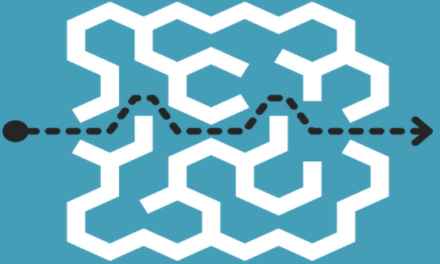If it’s free online, you are the product. – Karl Hodge (2018)
In the summer of 2021, Gradient Learning and its partner the Chan Zuckerberg Initiative began marketing a “free” digital tool, named Along, to teachers of the upper elementary through high school grades (Chan Zuckerberg Initiative, 2021; Gradient Learning, 2022a). Along, they explained, enables students to “share quick reflections one-on-one with their teacher so they can open up about who they are and what’s really on their mind — without peer pressure” (Gradient Learning, 2022b). As a result, they claim, Along will “supercharge” student-teacher relationships (NBC Universal, 2021) and make social-emotional learning (SEL) “practical” and “actionable” (Along, 2021b).
Here’s how it works: Along’s software prompts teachers to record video or audio of themselves asking their students a personal question (Gradient Learning, 2022c). Among the many questions that Along recommends (Along 2021a), some are relatively superficial, such as “What do you watch on television, in the movie theaters, or on other devices when you have free time?” Other questions are more intimate, such as, “What is something or someone in your life you are grateful for and why?” “What’s a problem you’re currently facing?” And “What is something you really value? Why do you value it?” After they receive one of these questions from their teacher, students can respond to it at their convenience, by text, audio message, or video message.
The Along website provides examples of how teachers can build on these exchanges to create relationships with their students that embody the SEL-related goals of “expressing care,” “challenging growth,” “providing support,” “sharing power,” and expanding possibilities (Gradient Learning, 2020). Teachers are also encouraged to use Along’s Student Dashboard to keep track of students’ responses or, if needed, to send them a “reminder” that they should respond (Gradient Learning, 2021a).
On the surface, the effort to solicit and collect these texts, audio files, and videos may seem benign. Student’s responses can be viewed only by the teacher who asked the question, or perhaps by parents and school administrators who request to see them (Gradient Learning, 2022a). On closer inspection, however, Along’s user agreement (like many other user agreements in the education technology sector) raises serious questions about who, exactly, will have access to this student data and for what purposes?
The push for “personalization”
We became interested in the commercial side of digital education platforms years before Along was created. During an earlier round of research into states’ student privacy laws, we noticed that several laws exempted “personalized learning” from their restrictions on the collection and use of student data (Boninger & Molnar, 2016). Why, we wondered, had such exemptions been created? As we dug deeper, we learned that, while personalized learning was historically an ill-defined concept, to many school reformers and private philanthropies, “personalization” now means a kind of digitally mediated instruction in which computers monitor students’ progress and, based on analysis of their performance data, provide them with lessons and activities tailored to their specific level of proficiency in the given skill or subject area (Boninger, Molnar, & Saldaña, 2019; Phillips & Jenkins, 2018).
Indeed, for more than a decade, a number of major foundations, most prominently the Bill & Melinda Gates Foundation, have promoted this approach through a range of political advocacy efforts (Bill & Melinda Gates Foundation et al., 2014) and research projects (e.g., Pane et al., 2017), as well as funding various schools to design and implement such models — including the Summit Public Schools, a network of charter schools in California and Washington (Boninger, Molnar, & Saldaña, 2019; Herold, 2017). The Gates Foundation alone has contributed nearly $57 million to Summit Public Schools since 2011 (Bill & Melinda Gates Foundation, n.d.). And, since 2018, the Chan Zuckerberg Initiative (CZI) has provided nearly $100 million to support the Summit Learning Platform and Gradient Learning (formerly T.L.P. Education), which Summit Public Schools originally created to market its digital Summit Learning Program (Summit Public Schools, 2019).
Today, CZI is deeply intertwined with Summit Public Schools, Gradient Learning, and the development and marketing of the Summit Learning Program and Along (Boninger, Molnar, & Saldaña, 2019; Chan Zuckerberg Initiative, 2022a). CZI experts “work closely” with Gradient staff on the Summit Learning Program’s curriculum and materials, CZI’s technologists lead the work on the Summit Learning Platform, and CZI provides the funding that enables Gradient to offer the Summit Learning Program and Along to schools across the country without charge (Summit Learning, n.d., a). Priscilla Chan chairs Gradient’s board of directors, and Summit Public Schools CEO Diane Tavenner is a member of the board (Guidestar, n.d.).
Although Summit Public Schools and Gradient Learning are nonprofit organizations, the data their digital platforms collect can be monetized, and their primary engineering partner, CZI, is a limited liability corporation that can and does make investments and earn profits. (CZI is often mistaken for a nonprofit, and its webpage says that its “mission is to build a more inclusive, just, and healthy future for everyone,” but it is, in fact, not a philanthropy.) Further, as the founder and controlling shareholder of Facebook (and its new parent company, Meta), Mark Zuckerberg has a reputation for concealing aggressive profit-seeking — based on the marketing of personal data — behind a veil of altruistic rhetoric (Eisinger, 2015).
Thus, we were alarmed when our study of Summit Public Schools (Boninger, Molnar, & Saldaña, 2019) found that its proprietary Summit Learning Program (now managed and marketed by Gradient) records massive amounts of student data, including such disparate information as students’ socioeconomic status, attendance records, suspension and expulsion records, standardized test results, extracurricular activities, grades, IP addresses, and teachers’ notes and feedback (Summit Learning, 2021). Further, when we examined the contracts signed by schools that have adopted the Summit Learning Program, we found provisions that gave Gradient the right (once personally identifiable information is removed) to use these data in perpetuity in their so-called “de-identified” form. Gradient could use these de-identified data “for any lawful purpose including, but not limited to, operating and improving the Services” (Summit Learning, n.d., b), which could include sharing or selling the de-identified data to third parties — such as, for example, CZI or Meta.
We were further alarmed when we learned that Gradient and CZI had released Along, a new product that EdSurge (Ingram, 2021) described as creating, over time, “a kind of digital library offering more comprehensive views of how each student is doing outside of school.” So, we decided to examine the contracts that govern its use.
Misleading promises of privacy
In the marketing materials that promote Along, Gradient uses feel-good language describing improved student-teacher relationships. In the legal documents that accompany the program, however, Gradient uses entirely different (and rather opaque) language to explain what it is allowed to do with the data its product collects. The two most significant documents are the Privacy Policy and the User Agreement, in particular the User Agreement’s Data Privacy Addendum (Gradient Learning, 2021c, 2021d).
These documents assure users that Gradient will never sell or disclose (for any purpose other than supplying Along to users) any “personal information” or “student data,” which customers might reasonably take to mean that Gradient will guard their privacy carefully. But, in fact, the Privacy Policy and the User Agreement define these terms in very limited and specific ways that require some explanation: “Student data . . . does not include information that has been anonymized, De-Identified Data, or anonymous usage data regarding a student’s use of the Services” (Gradient Learning, 2021d, section 1.1). And “personal information” is “information that alone, or in combination with other non-personal information would allow someone to identify or contact the child (Gradient Learning, 2021c, section 3).
It would be foolish to believe that CZI and Gradient’s use of the data they collect will be altruistic.
Here, too, customers might take this contractual language to mean that their privacy will be protected. After all, Gradient appears to be giving itself permission to sell or share data only after it has scrubbed away any and all information that links the data to specific people. If a student or a school asks that a student account be closed and their data destroyed, the contract says that Gradient will dispose of the data by shredding all paper records, erasing digital records from its system, and/or “modifying the Personally Identifiable Information contained in Student Data and Student Records to make it unreadable, indecipherable or de-identified” (Gradient Learning 2021d, section 4.6). Once it has done so, Gradient may do what it wishes with users’ de-identified data, such as create commercial products, use it for marketing, or sell or share it with any entity of its choosing — including CZI or Meta.
Once the contract has been signed, no one — not schools, parents, or students — can legally prevent Gradient from using their data in a de-identified form. But what’s the harm in sharing information about some anonymous Person X’s academic performance, test scores, extracurricular activities, and so on? Even users who are fairly knowledgeable about contemporary approaches to data-mining might conclude that if their data has been separated from their identity, and if that “anonymized” information will be thrown into a vast pool of “de-identified” data, then their privacy is safe.
Unfortunately, they would be wrong (Anderson, 2009; Wheaton, 2015).
There is a reason Gradient so carefully protects its right to use data it collects from children in its de-identified form. Gradient — and its technology partner and funder, CZI — likely know what computer scientists and marketers have known for decades: Data de-identification is a fiction (Narayanan & Shmatikov, 2008). As Ken Wheaton (2015), former editor of the trade publication Advertising Age, puts it, data anonymization is “a load of horseshit . . . a clever bit of technical and verbal misdirection used by marketers and tech people to keep regulators at bay.” He continues, “You might not know my name (but you probably do), but that hardly matters if you know every move I make, every breath I take . . . ” In short, the data collected by Along and retained by Gradient can easily be re-identified.
More important, even if data is left in de-identified form, it remains a powerful resource. And even if no effort is made to link specific pieces of information back to individuals, those data can be used in ways that ultimately undermine individual privacy and are socially destructive.
Analyses of massive sets of de-identified data are used primarily to classify, sort, and make predictions and decisions about groups of people. That is, those data sets are used to develop products that purport to predict individuals’ future thoughts, feelings, behaviors, health, and success, based on the specific groups to which they appear to belong (Citron & Pasquale, 2014; Siegel, 2016; Woo, Tay, & Proctor, 2020). The sorting and classification enabled by such analyses can, for instance, be used to assign students to academic tracks based on predictions of their likely future success (Barshay & Aslanian, 2019); market products to them based on predictions of what they might want (Scott, 2016); set the prices for goods and services based on predictions of what they are willing to pay (Elmachtoub, Gupta, & Hamilton, 2021); price their health insurance based on predictions of their future lifestyle choices or their likelihood of switching providers (Maryville University, 2022); and surveil them based on predictions of their likelihood of perpetrating a crime (Brennan Center for Justice, 2022). This is why Katharina Kopp, the deputy director of the Center for Digital Democracy, described de-identified data to us as “the treasure trove of data analytics” (personal email message, March 1, 2021).
Significantly, because of contracts (such as Gradient’s User Agreement) and laws (such as the Family Education Rights and Privacy Act [FERPA]) that allow education technology providers to use de-identified data, such predictive analytics can legally be developed and used without public oversight, independent assessment of the validity of predictions made, or students’ knowledge.
Let’s rein in the corporations
Adopting a strategy pioneered by Google, Gradient markets its products directly to teachers. And when teachers sign up their classes to use Along, Gradient becomes a “school official” under the law (Gradient Learning, 2021d), and as a school official, the company can be given student data without parental consent (Singer, 2017). While FERPA was intended to protect student data privacy, the federal legislation was amended in 2008 and 2011, creating this “school official exemption” (Electronic Privacy Information Center, n.d.). Thus, Gradient has unrestricted access to the personal reflections that students record, and it is free from liability for any harm its use of this information (and any other student information it collects) may cause. Further, because they are private entities, Gradient and CZI are shielded from public records requests. It is, therefore, impossible for the public to know the full range of ways these companies use — or will use — the vast amounts of information they collect about students.
To fully understand the potential for educational and social harm that products like Along present, keep in mind that Gradient’s funder and technology partner, CZI, is not a philanthropy. As noted earlier, it is a limited liability corporation (Dolan, 2015) that has expressed an interest in creating a “full, data-based picture of each child — from home life to health status” (Chan Zuckerberg Initiative, 2017). Given this interest, it is not surprising that CZI tends to fund projects with a voracious appetite for data of all kinds.
CZI claims that its investments are motivated by noble purposes and that its “whole child approach to education . . . honors the humanity of each teacher and student, and is critical to equitably preparing each student to reach their full potential. This starts by creating environments of belonging and connection for students and adults to engage and thrive” (Chan Zuckerberg Initiative, 2022b). If this sounds familiar, it’s because we’ve heard this kind of altruistic rhetoric before from tech billionaires and tech companies, most notably from Mark Zuckerberg and Facebook. Unfortunately, we are all now living with the harms caused by Facebook’s privacy violations (Guliani, 2019), its unkept commitments to responsible corporate behavior (Tufekci, 2018), and its socially destructive approaches to profit-making (Haugen, 2021). Given this background, it would be foolish to believe that CZI and Gradient’s use of the data they collect will be altruistic.
If anything, one has to wonder if Along is part of a larger corporate strategy to draw more children into the Facebook/Meta orbit. Indeed, the development of Along comes at a time when Facebook is seeking to reassert its relevance to young users who have abandoned it for trendier social networks such as TikTok (Hutchinson, 2021). It also comes at a time when Facebook has rebranded itself as Meta, stating its intention to market its “metaverse” to schools (Young, 2021).
The truth is in the contract language. If Gradient Learning and CZI were serious about protecting privacy, and if they were sincere in their claims of selfless devotion to the public good, then they would have had their lawyers draft very different contractual terms than those that Along currently requires schools to accept.
If policy makers truly want to protect students, then they should close the “school official” loophole in FERPA, prohibit technology platforms from retaining student data in any form, establish students as the owners of their data in all its forms, and make technology providers liable for any harm caused by their use of the data they collect.
For their part, if schools are interested in supporting authentic student-teacher relationships, then they should not feed their students into the Facebook/Meta (or any other) data-sucking ecosystem. A sounder and more genuinely personalized approach would be for teachers to be given the time they need to connect with their students the “old-fashioned” way — by building face-to-face personal relationships that don’t create a digital data trail.
To our cost, we have allowed Silicon Valley to get away with far too much for far too long. Zuckerberg and an assortment of unaccountable digital billionaires and billionaire-wannabes have been moving fast and breaking things. Why should our public schools help them do so?
References
Along (2021a, October 26). See how quick and easy it is to reflect with students [Video]. Youtube. https://bit.ly/AlongReflect
Along (2021b, November 29). SEL mindsets and practices to #KnowEachStudent [Video]. https://bit.ly/AlongSEL
Anderson, N. (2009, September 8). “Anonymized” data really isn’t — and here’s why not. Ars Technica.
Barshay, J. & Aslanian, S. (2019, August 6). Colleges are using big data to track students in an effort to boost graduation rates, but it comes at a cost. Hechinger Report.
Bill & Melinda Gates Foundation. (n.d.). Committed Grants Database. https://gates.ly/3oVZ16u
Bill & Melinda Gates Foundation, Afton Partners, Eli & Edythe Broad Foundation, CEE Trust, Christensen Institute, Charter School Growth Fund, EDUCAUSE, iNACOL, The Learning Accelerator, Michael & Susan Dell Foundation, & Silicon Schools. (2014). A working definition of personalized learning. https://assets.documentcloud.org/documents/1311874/personalized-learning-working-definitionfall2014.pdf [no longer available]
Boninger, F. & Molnar, A. (2016). Learning to be watched: Surveillance culture at school. National Education Policy Center.
Boninger, F., Molnar, A., & Saldaña, C.M. (2019). Personalized learning and the digital privatization of curriculum and teaching. National Education Policy Center.
Brennan Center for Justice. (2022). Predictive policing explained. New York University Law School.
Chan Zuckerberg Initiative. (2017, January 18). Supporting the Silicon Valley Regional Data Trust. https://bit.ly/CZISilicon
Chan Zuckerberg Initiative. (2021, June 28). Chan Zuckerberg Initiative and Gradient Learning launch new tool to support teacher-student relationships [press release]. Cision PR Newswire. https://prn.to/3LFQEWc
Chan Zuckerberg Initiative. (2022a). Grants. https://bit.ly/CZIGrants
Chan Zuckerberg Initiative. (2022b). Whole child approach to education. https://bit.ly/CZIWholeChild
Citron, D.K. & Pasquale, F. (2014). The scored society: Due process for automated predictions. Washington Law Review, 89 (1).
Dolan, K.A. (2015, December 4). Mark Zuckerberg explains why the Chan Zuckerberg Initiative isn’t a charitable foundation. Forbes.
Eisinger, J. (2015, December 3). How Mark Zuckerberg’s altruism helps himself. The New York Times.
Electronic Privacy Information Center. (n.d.). Department of Ed FERPA enforcement FOIA request. https://bit.ly/EdFERPA
Elmachtoub, A.N., Gupta, V., & Hamilton, M.L. (2021) The value of personalized pricing. Management Science, 67 (10), 6055-6070.
Family Education Rights and Privacy Act of 1974 (FERPA), 34 CFR Part 99. https://studentprivacy.ed.gov/ferpa
Gradient Learning. (2020). How can I explore Along? https://bit.ly/ExploreAlong
Gradient Learning. (2021a). Using Along data to know and support each student. https://bit.ly/AlongData
Gradient Learning. (2021b). Protecting your child’s privacy is our top priority. https://bit.ly/AlongPrivacy
Gradient Learning. (2021c). Along Privacy Policy. www.along.org/privacy-policy
Gradient Learning. (2021d). Along User Agreement. www.along.org/user-agreement
Gradient Learning. (2022a). Along. www.along.org
Gradient Learning. (2022b). Frequently asked questions. www.along.org/faq
Gradient Learning. (2022c). How it works. www.along.org/how-it-works
Guidestar (n.d.). Gradient Learning [webpage]. www.guidestar.org/profile/35-2645251 [subscription required]
Guliani, N.S. (2019, January 6). We should be able to take Facebook to court. The New York Times.
Haugen, F. (2021, October 4). Statement of Frances Haugen. United States Senate Committee on Commerce, Science and Transportation Sub-Committee on Consumer Protection, Product Safety, and Data Security.
Herold, B. (2017, June 29). Chan Zuckerberg to push ambitious new vision for personalized learning. Education Week.
Hodge, K. (2018, April 19). If it’s free online, you are the product. The Conversation.
Hutchinson, A. (2021, October 5). Internal documents show Facebook usage among young users is in steep decline. Social Media Today.
Ingram, N. (2021, June 30). Chan Zuckerberg Initiative launches free online reflection tool for students and teachers. EdSurge.
Maryville University. (2022). Predictive analytics in insurance: Types, tools, and the future. https://bit.ly/InsurancePrediction
Narayanan, A. & Shmatikov, V. (2008). Robust de-anonymization of large sparse datasets. SP ‘08 Proceedings of the 2008 IEEE Symposium on Security and Privacy, pp. 111-125.
NBC Universal (2021, June 28). Priscilla Chan announces free digital tool to strengthen classroom connections [Video]. The Today Show.
Pane, J.F., Steiner, E.D., Baird, M.D., Hamilton, L.S., & Pane, J.D. (2017). Informing progress: Insights on personalized learning implementation and effects. RAND Corporation.
Phillips, K. & Jenkins, A. (2018). Communicating personalized learning to families and stakeholders: Terminology, tools and tips for success (pp. 9-10). ExcelinEd and Education Elements.
Scott, T. (2016, October 29). Education technology, surveillance, and America’s authoritarian democracy. Dissident Voice. https://bit.ly/EdTechSurveillance
Siegel, E. (2016). Predictive analytics: The power to predict who will click, buy, lie, or die. Wiley.
Singer, N. (2017, May 13). How Google took over the classroom. The New York Times.
Summit Learning. (n.d., a). How do Summit Learning and the Chan Zuckerberg Initiative partner together? [webpage]. https://bit.ly/SummitCZI
Summit Learning. (n.d., b). Data Privacy Addendum. https://bit.ly/SummitAddendum
Summit Learning. (2021). Privacy policy (Section 3.1). www.summitlearning.org/privacy-center/privacy-policy
Summit Public Schools. (2019). Excellence is equity: Summit Public Schools end-of-year summary 2018–19 (pp. 21 and 39). https://bit.ly/SummitEOY
Tufekci, Z. (2018, April 6). Why Zuckerberg’s 14-year apology tour hasn’t fixed Facebook. Wired.
Wheaton, K. (2015, March 23). Hocus pocus! Your data has been anonymized! Now they’ll never find you! Advertising Age.
Woo, S.E., Tay, L., & Proctor, R. (2020). Big data in psychological research. American Psychological Association.
Young, J.R. (2021, October 29). As Facebook changes name to Meta, company wants to pull education into its ‘Metaverse.’ EdSurge.
This article appears in the April 2022 issue of Kappan, Vol. 103, No. 7, pp. 33-37.
ABOUT THE AUTHORS

Faith Boninger
Faith Boninger is a research professor and co-director of the Commercialism in Education Research Unit, National Education Policy Center, University of Colorado Boulder. She and Alex Molnar are the authors of Sold Out: How Marketing in School Threatens Children’s Well-Being and Undermines Their Education.

Alex Molnar
Alex Molnar is a research professor, publications director, and co-director of the Commercialism in Education Research Unit, National Education Policy Center, University of Colorado Boulder. Molnar and Faith Boninger are the authors of Sold Out: How Marketing in School Threatens Children’s Well-Being and Undermines Their Education.













